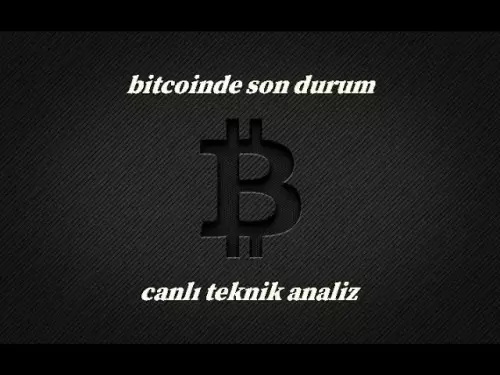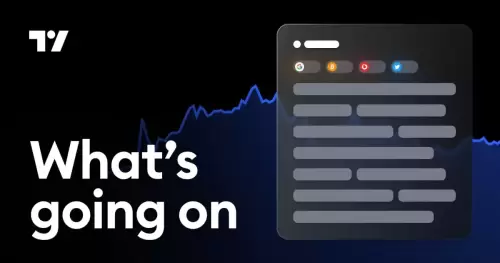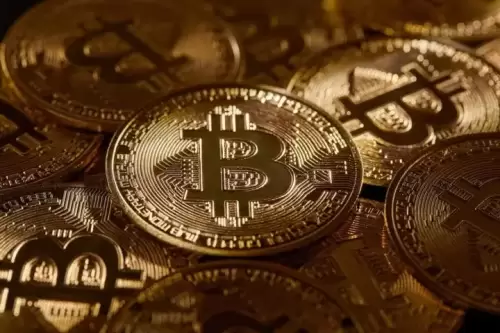 |
|
 |
|
 |
|
 |
|
 |
|
 |
|
 |
|
 |
|
 |
|
 |
|
 |
|
 |
|
 |
|
 |
|
 |
|
Cryptocurrency News Articles
DeFi Fees & PancakeSwap: On-Chain Trends and Turkey's Crackdown
Jul 07, 2025 at 03:04 am
Explore the rise in DeFi fees, PancakeSwap's role, and Turkey's recent ban. Understand the trends and regulatory shifts impacting the crypto landscape.

DeFi Fees & PancakeSwap: On-Chain Trends and Turkey's Crackdown
DeFi is booming, but so are the fees. PancakeSwap's been a big player, but recent crackdowns, like in Turkey, are changing the game.
DeFi Fees Surge: PancakeSwap's Role
The DeFi sector has seen on-chain fees skyrocket, with monthly revenue jumping around 58% recently. We're talking serious cash – from about $366 million in April to a whopping $577 million. A big reason? PancakeSwap. They raked in $275 million in fees from their automated market-making and yield farming. Not bad, right?
PancakeSwap's appeal? Peer-to-peer transactions cutting out the middleman. All those fees come from a tiny 0.25% charge on each trade. They're also expanding, launching V3 Liquidity on Solana to offer lower fees and more efficient swaps. Smart move.
Pump.Fun and the Memecoin Mania
It's not just PancakeSwap. Pump.Fun, the Solana-based memecoin platform, is also crushing it, pulling in $63.61 million in fees in just 30 days. Memecoins are driving transaction frequency, which drives revenue. Everyone's trying to innovate and grab a piece of the DeFi pie.
Arbitrum's Timeboost: Speed and Fairness
Speaking of innovation, Arbitrum's Timeboost is making waves. This new transaction ordering policy has generated $2 million in blockchain fees since April. It prioritizes transactions based on a fee premium, making things faster and fairer, especially for high-frequency DeFi traders. Around 20-30% of daily DEX trading volume on Arbitrum is using Timeboost. People are willing to pay for speed and predictability.
Turkey's Crackdown on PancakeSwap
But here's where things get tricky. Turkey's Capital Markets Board (CMB) just blocked PancakeSwap, along with 45 other websites. Why? They're cracking down on unlicensed crypto services to comply with global regulations and minimize risks. It's part of a broader trend of tightening crypto regulations worldwide.
With a struggling national currency, many Turks have turned to crypto as a store of value. In fact, the Turkish lira surpassed the Euro as the third-largest fiat currency spent on cryptocurrencies. But now, the government is stepping in, potentially limiting access to decentralized finance services.
Global Regulatory Trends
Turkey's not alone. Countries like Singapore, Hong Kong, Kazakhstan, Venezuela, and the Philippines are also cracking down on unvetted crypto activities. It signals a global shift toward tighter crypto regulation, especially in economies dealing with inflation or capital volatility.
The Future of DeFi
So, what does all this mean? DeFi is evolving. Innovation is key, but regulation is catching up. PancakeSwap and other platforms need to navigate these challenges to stay relevant. Will Turkey's move stifle innovation, or push the market toward a more regulated model? Only time will tell.
One thing's for sure: the DeFi space is anything but boring. It's a wild ride with new twists and turns every day. Buckle up, folks!
Disclaimer:info@kdj.com
The information provided is not trading advice. kdj.com does not assume any responsibility for any investments made based on the information provided in this article. Cryptocurrencies are highly volatile and it is highly recommended that you invest with caution after thorough research!
If you believe that the content used on this website infringes your copyright, please contact us immediately (info@kdj.com) and we will delete it promptly.






























































